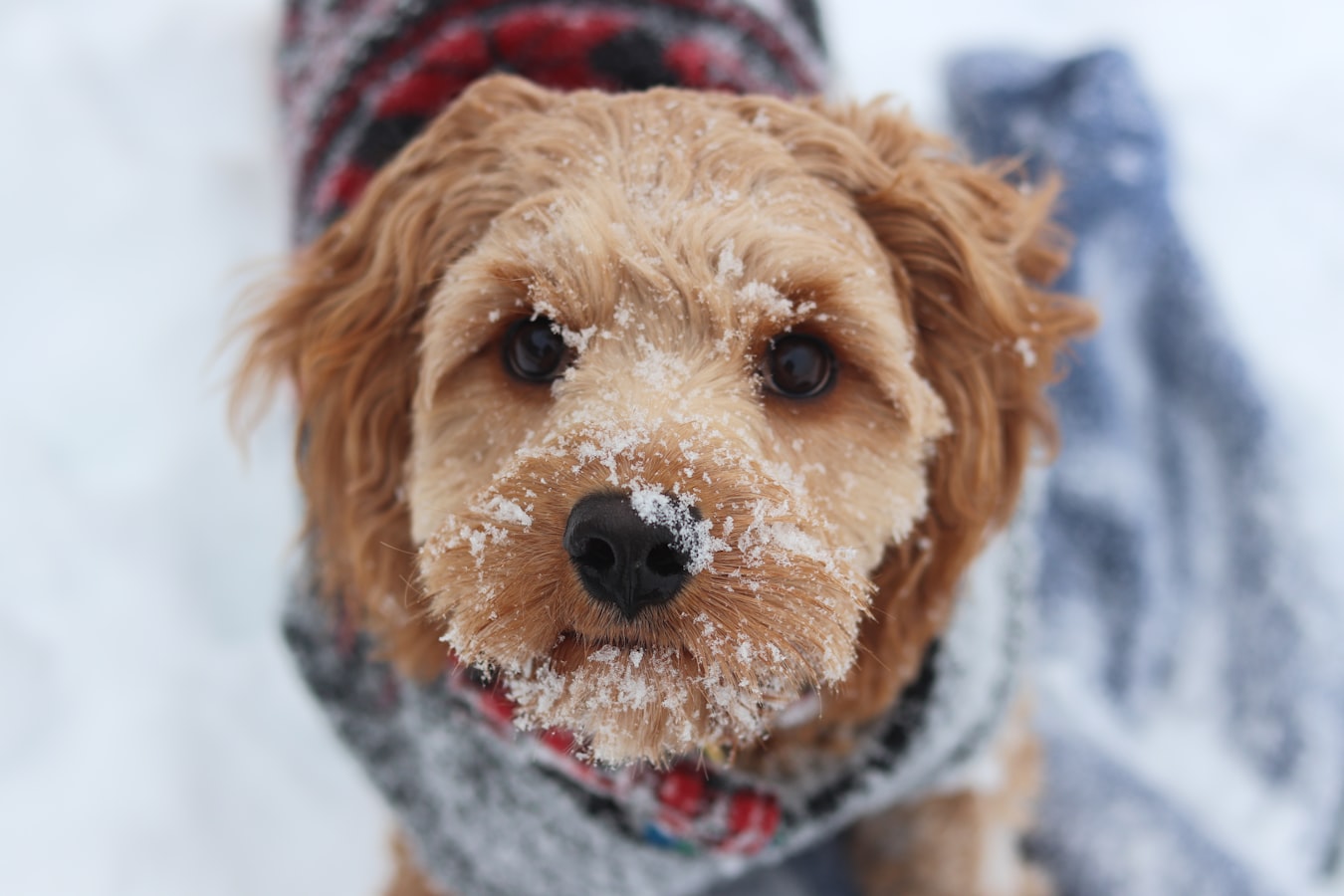Cold Weather Care for Doggies
Updated On: Friday, August 8, 2025 07:37:55 AM America/Los_Angeles
Each season brings its own concerns for your dog’s health and well-being. Winter is no different and it’s perhaps one of the more difficult seasons to navigate. In this post, we’ll discuss some common issues that you and your dog might confront in the colder months. So, grab some hot cocoa, bundle up with your pup, and keep reading to find out more about these dog care tips that can make sure winter is as cozy as possible for your pooch!
Photo by Mia Anderson
Provide an indoor potty:
For those of us who live in areas where it snows or rains regularly in the winter, taking your dog out can be a lot. An indoor dog potty is a great way to avoid chilly walks--especially if your pup prefers those early morning jaunts! If you’re snowed in or don’t feel like strolling through heavy rain, indoor potties like DoggieLawn can be a lifesaver. Plus, your dog will appreciate having access to a real grass pee pad in the dead of winter.
Cozy bedding:
If your dog is home alone for any stretch of time (whether you're at work or on a trip), make sure they have a warm place to rest that is away from cold drafts. A heated bed can provide comfort as well as ease aches that might flare up in cold weather for dogs with joint problems.
Limit exposure to cold weather:
Try to walk your dog when the sun is out to reduce chances of getting sick. During colder months, it’s not unusual for pets to get an upper respiratory infection (URI), which is kind of like the doggie version of the common cold. One option is to utilize a fresh grass pee pad for your dog. This can help minimize exposure to cold weather, which can weaken immune systems.
Avoid boarding if possible:
Once your dog is trained to go on an indoor potty, you can also have them stay at home for your shorter trips. Boarding at kennels exposes your dog to the possibility of catching a URI or kennel cough.
Moisturize:
As temperatures drop and heater use increases, even the healthiest pups might experience drier noses and paw pads. For those that have existing issues such as calluses or eczema, regular use of a moisturizer can help relieve dry or irritated skin. Opt for less frequent baths and gentler grooming products during the winter. Additionally, you might utilize a humidifier to counter the dry weather and keep your dog’s skin hydrated.


